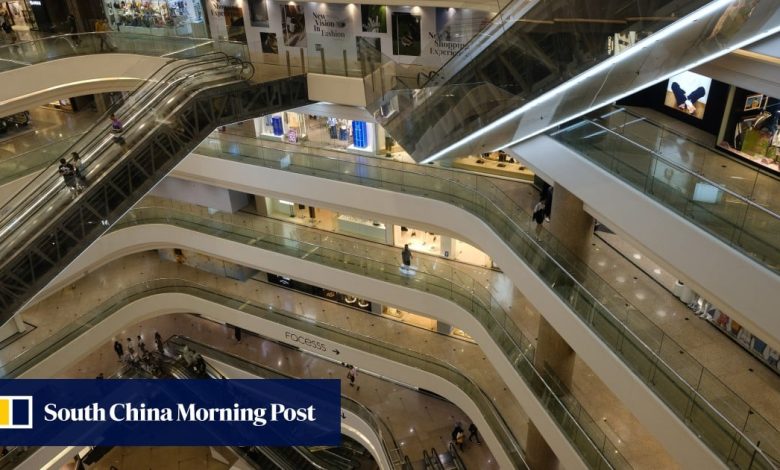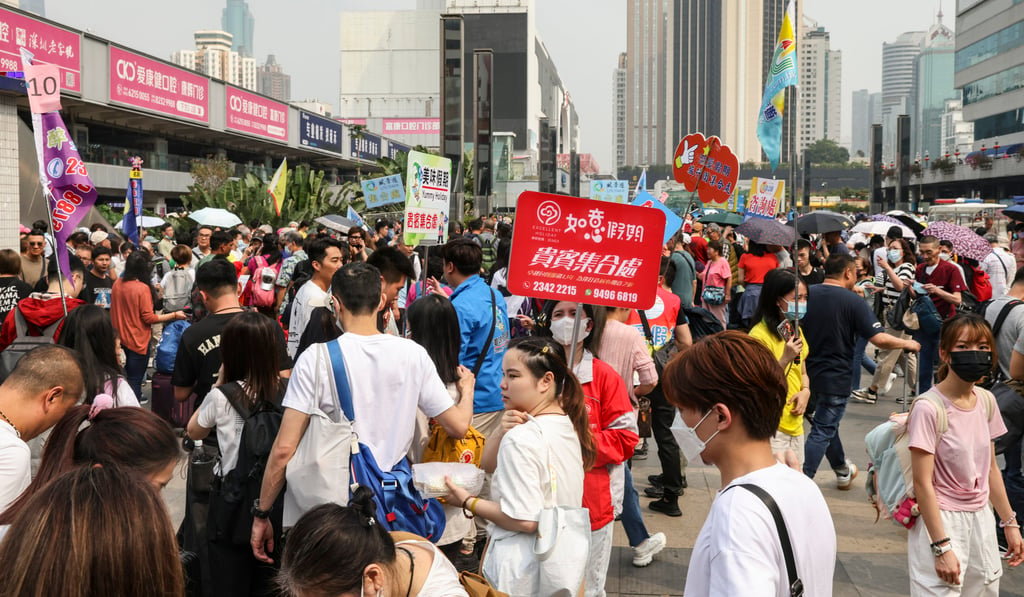Wharf, REIC warn of rare losses as Hongkongers’ northbound sojourns add to retail slump

Two of Hong Kong’s biggest property developers warned that they may report losses in the first six months of 2024, as dwindling foot traffic at their Harbour City and Times Square shopping centres underscored the sorry state of the city’s retail slump.
The Wharf (Holdings) and Wharf Real Estate Investment Company (REIC) both expect “possible turnarounds” from profits to losses in their first-half results, the companies said in filings to the Hong Kong stock exchange on Monday.
Wharf REIC may report a first-half loss of at least HK$900 million (US$115.2 million) when it reports its results on August 6, compared with the HK$1.8 billion profit last year, the company said. Its stock closed unchanged at HK$19.44 during the lunch trading pause.
Wharf may swing to a first-half loss of between HK$2.5 billion and HK$2.8 billion in its results on August 11, the company said. Losses from the revaluation of its property portfolio, both “non-cash and unrealised”, may exceed the group’s underlying profit, Wharf said. The company’s stock fell 3 per cent to HK$23.90.

The rare warnings show how Hong Kong’s consumption slump is trickling down to the bottom lines of the city’s shopping centre operators and landlords. Retail sales shrank by 11.5 per cent in May to HK$30.5 billion, the second month of double-digit percentage decline, according to the city’s Census and Statistics Department.
“Retail sales recovery in Hong Kong stalled very soon after the reopening of borders in the first quarter of 2023. Deterioration followed in 2024,” Wharf REIC said. The company’s 2023 net profit fell 3 per cent to HK$6 billion, despite a 7 per cent increase in revenue to HK$13.3 billion.
Wharf is 77-per cent owned by Wheelock & Company, the vehicle of Peter Woo Kwong-ching, the patriarch of one of Hong Kong’s wealthiest clans. Wheelock owns 51 per cent of Wharf REIC. The group develops residential properties and holds investment assets including offices, hotels and shopping centres.
Its major commercial assets in China include Shanghai Wheelock Square and Niccolo Changsha, the tallest hotel in central China. The company also operates container terminals in Hong Kong.
Wharf’s property sales fell 33 per cent last year, driving down the company’s net profit by 9 per cent before provisions. The developer sold two of its ultra-luxury mansions in Hong Kong to shore up its income, and has not replenished its land bank on the mainland since 2019 amid a poor market outlook.
Still, a turnaround may be on the horizon, as the Chinese government’s largesse to promote Hong Kong as the country’s offshore financial hub may bear fruit. Policies by Hong Kong’s government to attract students and talent employees may also lead to corresponding demand for housing and bolster retail spending.
“The further enhanced Individual Visit Scheme and the increase of duty-free allowance for luggage articles for mainland resident visitors, should help stimulate retail businesses,” Hong Kong’s government said.


 Offers free spin
Offers free spin